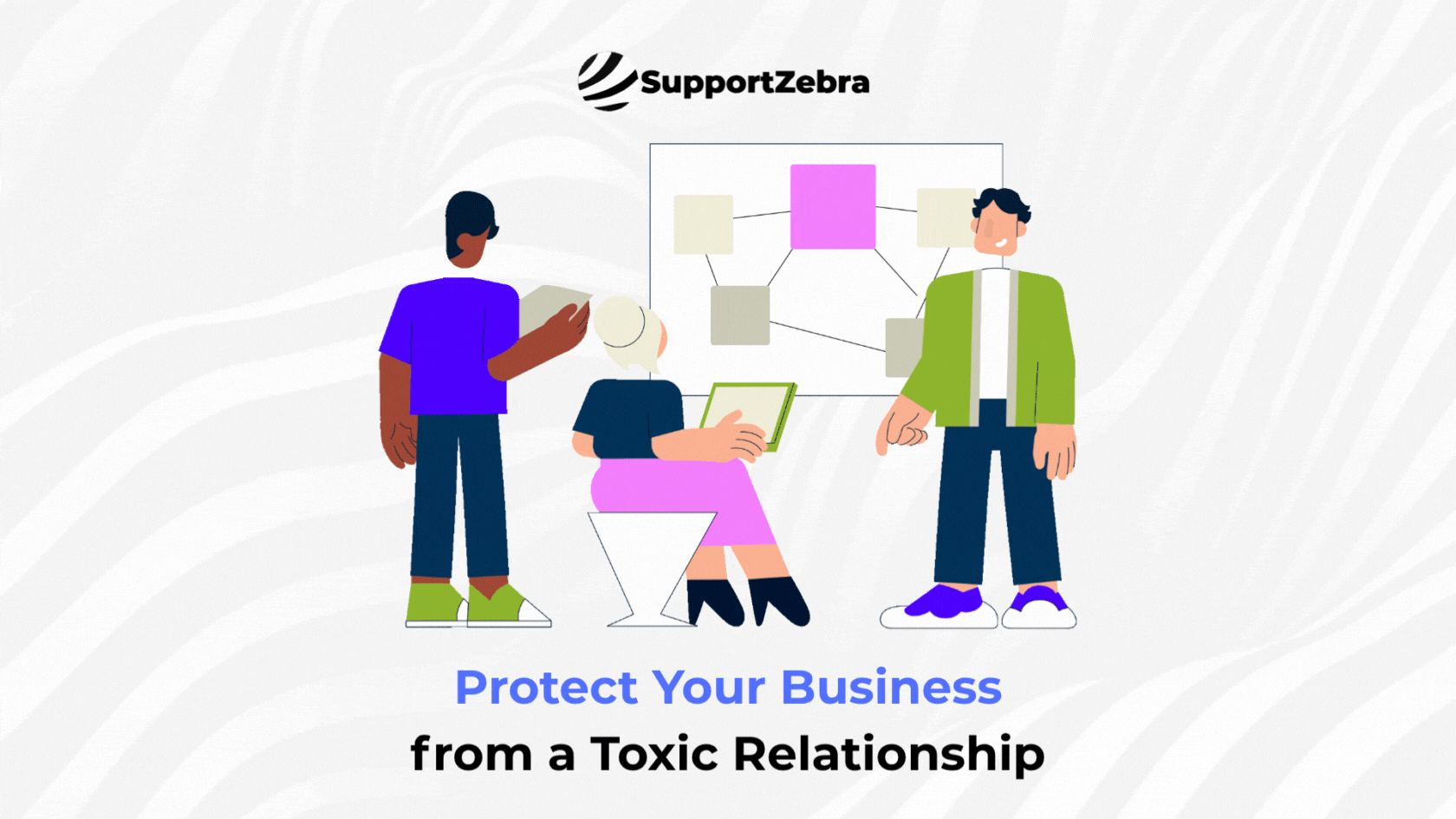How Can You Safeguard Your Business from Toxic Outsourcing Practices?
Key Takeaways:
- Toxic outsourcing relationships can lead to delays, financial losses, and long-term damage to your business reputation.
- Early warning signs include poor communication, missed deadlines, hidden costs, and lack of respect or transparency.
- Protect your business by setting clear expectations, monitoring vendor performance, and maintaining open communication.
- Strong vendor relationships built on trust, shared goals, and transparency drive innovation and sustainable growth.
What happens when your outsourcing vendor relationship turns toxic? A toxic partnership can lead to various negative outcomes, including project delays, financial setbacks, and damage to your reputation. Effective management of outsourcing vendors is crucial for businesses that rely on external service providers to boost efficiency, reduce costs, and leverage specialized expertise.
This article will examine the importance of maintaining healthy relationships with outsourcing vendors, the risks associated with toxic partnerships, and strategies to protect your business from such issues.
Identifying Toxic Vendor Relationships
Recognizing toxic vendor relationships is essential for the well-being of your business. Here are three key indicators that suggest a partnership may have become detrimental:
- Poor Communication
Clear communication is essential for a thriving partnership. When communication breaks down, it can lead to misunderstandings, irritation, and erosion of trust, ultimately jeopardizing the relationship and business outcomes.
- Missed Deadlines and Unexpected Expenses
Repeatedly failing to meet deadlines is a significant warning sign, as it can disrupt your operations and result in financial setbacks. Moreover, vendors who initially offer low prices but later impose hidden charges can diminish trust and create financial pressure.
- Absence of Transparency and Respect
A detrimental relationship often lacks transparency concerning processes and expectations, leading to disputes. Additionally, a vendor who consistently disregards your boundaries or undermines your expertise can harm team morale and tarnish your company’s reputation.
Toxic relationships can significantly impact your team, resulting in decreased efficiency, heightened stress, and potential damage to your company’s reputation. Identifying these warning signs early on can enable you to protect your business in advance.
Strategies for Safeguarding Your Business

Implementing effective strategies to protect your business from toxic vendor relationships is crucial. Here are three important methods to consider:
- Create Effective Communication Channels
Establishing clear and open lines of communication is crucial for maintaining a strong vendor relationship. Regular updates, feedback sessions, and the use of collaboration tools can help ensure that both parties are on the same page. Having a single point of contact can also enhance communication efficiency.
- Set Clear Expectations and Metrics
Defining expectations and performance metrics upfront is critical for a successful partnership. Establishing specific SLAs and deliverables can help evaluate vendor performance and hold both parties accountable. This can reduce disputes and ensure quality standards are met.
- Monitor Vendor Performance Regularly
Reviewing vendor performance against KPIs and service quality standards is essential for assessing alignment with business goals. Addressing issues early on and providing feedback can lead to a more collaborative relationship and informed decisions about the partnership.
Building Strong Vendor Relationships
Strong vendor relationships are essential for a business’s success and long-term growth. Trust and openness are essential to these relationships, creating a space where both sides can collaborate effectively and develop new ideas. To improve teamwork and partnership, think about using these three main strategies:
- Promote Clear Communication
Communication must be clear and consistent. Regular updates, feedback meetings, and open discussions about problems and goals help both sides stay aligned and address issues promptly.
- Set Shared Goals
Working together to create common goals can enhance the partnership. When the vendor and client share the same objectives, it fosters teamwork and responsibility, leading to better results.
- Encourage Transparency
Building a culture of openness in all aspects of the relationship, including pricing, performance measures, and strategic choices, fosters trust. This transparency enables both parties to see each other’s strengths and weaknesses, leading to improved decision-making and teamwork.
Cultivating a positive vendor relationship goes beyond project success. It leads to increased innovation, better operational efficiency, and a more competitive market position. By focusing on trust and transparency, companies can establish robust partnerships that foster mutual success and sustainability.
Maintaining Healthy and Productive Outsourcing Relationships
At SupportZebra, we help companies build and maintain effective outsourcing partnerships. With over 20 years of experience, we prioritize open communication, transparency, and accountability. We work closely with clients to set clear expectations, define performance metrics, and regularly assess vendor performance.
Fostering trust and teamwork creates an environment for innovation and shared goals. Our core values of integrity, innovation, and excellence guide every partnership.
Partner with SupportZebra for confident outsourcing that drives growth, efficiency, and success. Contact us today to achieve your business goals.

